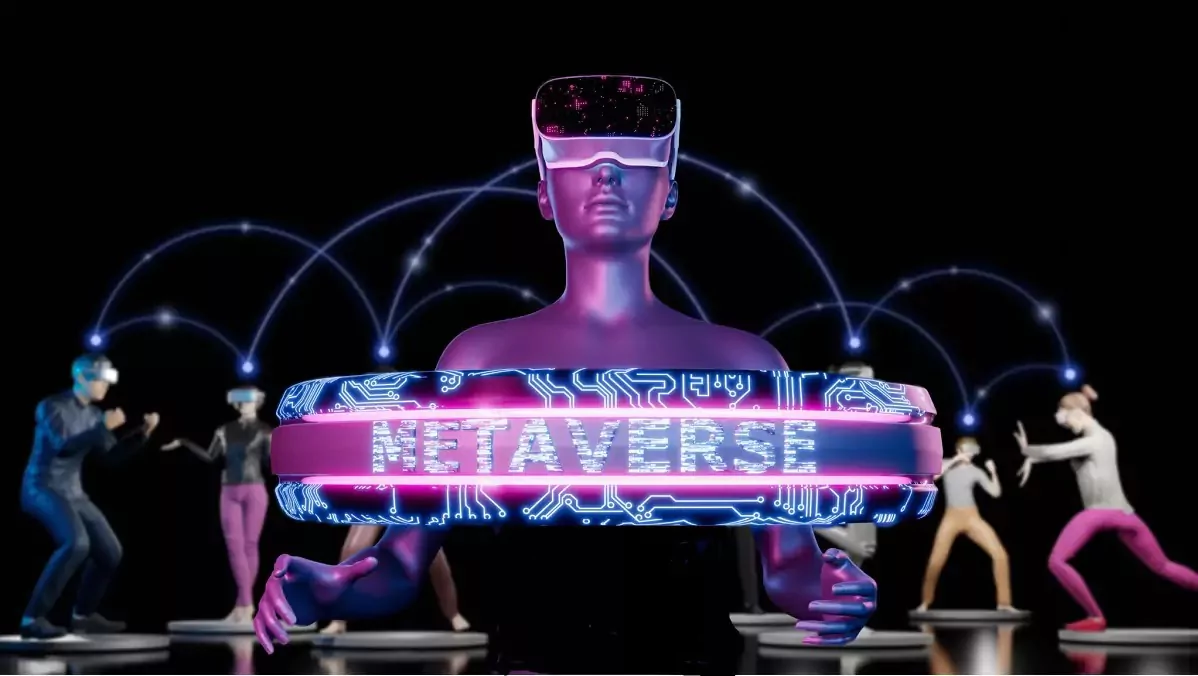The Metaverse, an immersive virtual world combining the realms of physical and digital dimensions, is showing an extraordinary growth trajectory, according to a recent report by MarketsandMarkets.
From a modest USD 83.9 billion in 2023, the global Metaverse market is anticipated to reach a massive USD 1,303.4 billion by 2030, showing an impressive Annual Growth Rate of 48.0% during the given period.
As the concept gains popularity across various sectors, it is clear that the Metaverse is here to revolutionize the way we interact, work, and play in the digital world.
Understanding the Dynamics of the Metaverse
Driving Forces:
1. Demand from the Entertainment and Gaming Industries
Interactive media like game developers and content creators are leveraging this technology to offer engaging and lifelike experiences to users.
2. Emerging Opportunities from Adjacent Markets
The integration of the Metaverse with other cutting-edge technologies such as VR, AR, and extended reality(ER) is opening new avenues for growth, and fostering cross-industry collaborations and innovation.
3. Virtualization in Fashion, Art, and Retail Industries
The Metaverse is not limited to gaming and entertainment; it is making inroads into industries like fashion, art, and retail, facilitating virtual try-on experiences, digital art exhibitions, and immersive virtual shopping settings.
4. Surge in Deployment in the Education Sector and Industrial Training
Educational institutions and industrial sectors are adopting the Metaverse for training programs, virtual classrooms, and simulated real-life scenarios, enhancing the learning and training experiences at both individual and professional levels.
5. Increase in Adoption of Metaverse in the Healthcare Sector
The healthcare industry is also exploring the potential of the Metaverse in patient care, medical training simulations, and virtual healthcare services, for transformative advancements in the field of medicine and patient care.
Limiting Factors:
1. High Installation and Maintenance Costs of High-end Metaverse Components
The initial costs associated with setting up and maintaining advanced Metaverse infrastructure pose a challenge for widespread adoption, particularly for smaller businesses and organizations.
2. Regulations About Cybersecurity, Privacy, and Usage Standards
Amidst growing concerns about data privacy and security, regulatory frameworks surrounding the usage of the Metaverse are being formulated, imposing compliance requirements on market players.
Lucrative Prospects:
1. Incorporation of Metaverse and Adjacent Technologies in the Aerospace & Defense Sector
The integration of the Metaverse with technologies such as AR and VR holds immense potential for enhancing training simulations, strategic planning, and real-time decision-making processes in the aerospace and defense domains.
2. Continuous Developments in 5G Technology
The ongoing advancements in 5G technology are expected to amplify the capabilities of the Metaverse, enabling seamless connectivity, high-speed data transmission, and enhanced user experiences across diverse digital platforms.
3. Emergence of Virtual Experiences in Corporate and Hospitality Sectors
Corporate entities and the hospitality industry are embracing the Metaverse to create immersive virtual events, interactive marketing campaigns, and virtual tours, revolutionizing the way businesses engage with their customers and stakeholders.
Key Players Paving the Way in the Metaverse Market
The Metaverse landscape is being shaped by industry giants and technological innovators, with key players including Microsoft (US), Sony (Japan), Meta (US), HTC (Taiwan), Google (US), Apple (US), Qualcomm (US), Samsung (South Korea), Activision Blizzard (US), and NetEase (China), among others.
These market leaders are spearheading the development of cutting-edge technologies and platforms that are redefining the virtual experience for global audiences.
Role of Software in the Metaverse
In Metaverse, software plays a key role in facilitating the creation, design, and immersive experience within the virtual world.
The software segment encompasses a wide array of essential components, including gaming engines, 3D modeling & reconstruction tools, volumetric video tools, geospatial mapping software, metaverse platforms, and financial platforms.
Game engines, in particular, serve as the cornerstone for developing captivating virtual environments, enabling developers to focus on creating engaging content and gameplay experiences without the need to build the underlying technology from scratch.
Market Analysis Across Global Regions
Leading the Way: North America’s Technological Advancements
North America stands at the forefront of Metaverse adoption, owing to its technological power and robust digital infrastructure.
The region boasts a thriving market for cutting-edge display technology, with companies and individuals actively investing in digital solutions and advanced technologies.
Notably, the US, with its concentration of global tech giants such as Microsoft, Apple, Meta, and Google, is propelling the growth of the Metaverse through its widespread adoption in various industries, including consumer electronics, aerospace and defense, healthcare, and education.
The Transformative Role of VR and AR Technologies
Virtual Reality (VR) and Augmented Reality (AR) technologies are instrumental in delivering immersive experiences within the Metaverse.
VR offers fully immersive digital environments, while AR overlays digital content onto the real world, fostering a seamless integration of the physical and digital realms.
With the advancements in hardware and the proliferation of engaging content, VR and AR are witnessing increased adoption across diverse sectors, including gaming, marketing, training, and industrial applications.
This upward trajectory is indicative of the transformative potential of these technologies in shaping the future of the Metaverse and digital experiences.
For more information, visit the official website. And remember to subscribe to Gaming Foodle for more news!
Discover more from Gaming Foodle
Subscribe to get the latest posts sent to your email.

